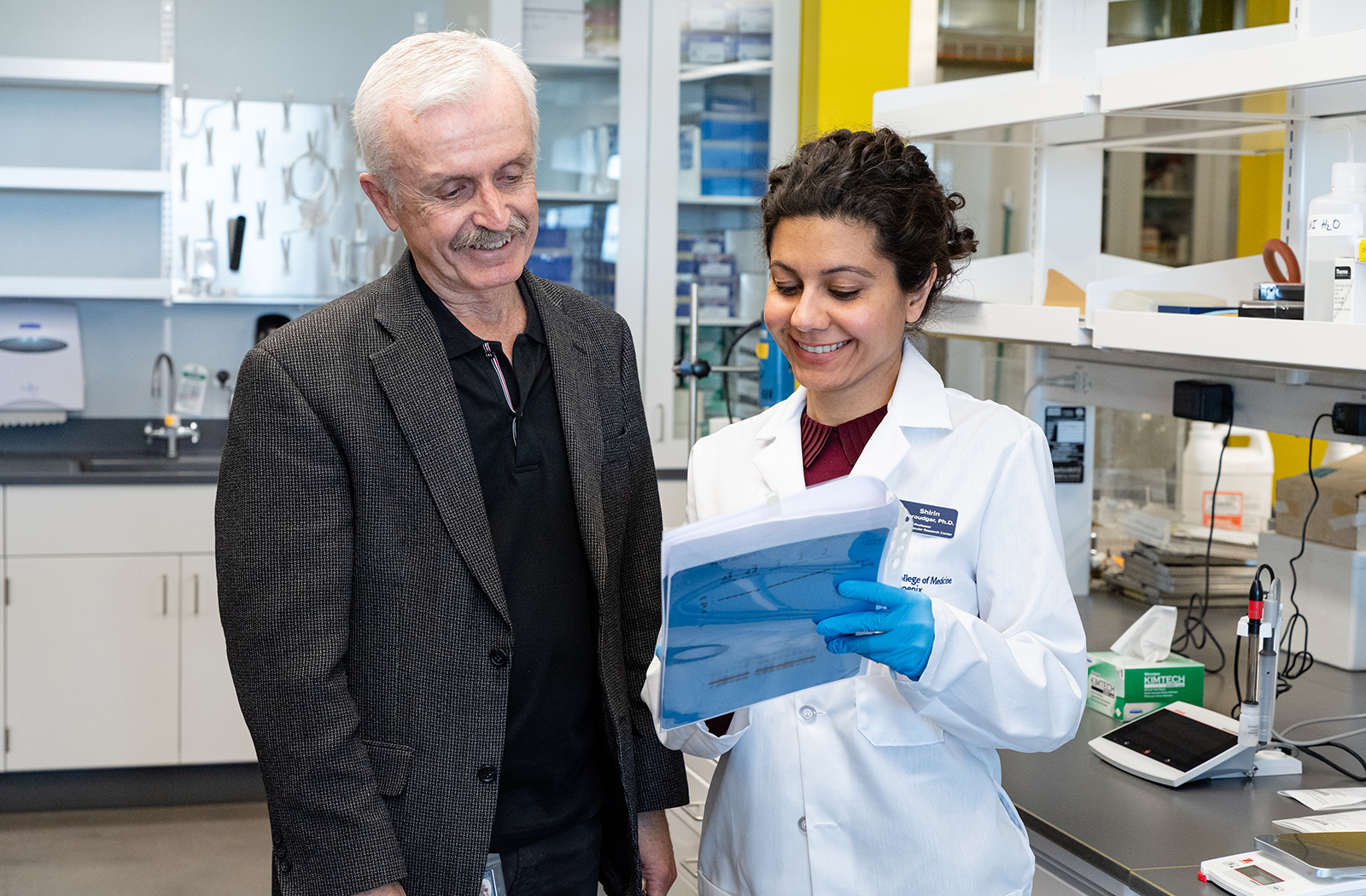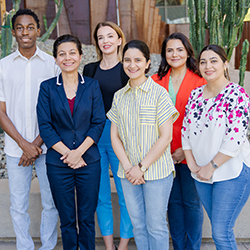
Protein Homeostasis May Hold the Key to More Successful Treatment of Heart Disease

Coronary artery disease (CAD) is the most common form of heart disease, the leading cause of death for both men and women. Of the roughly 695,000 people who died from heart disease in 2021, more than 375,000 deaths were attributable to CAD, according to the Centers for Disease Control and Prevention (CDC).
There currently is no effective therapy for CAD — a precursor to ischemia and myocardial infarction (heart attack) — but through her research, Shirin Doroudgar, PhD, an assistant professor in the Department of Internal Medicine and a member of the Translational Cardiovascular Research Center at the University of Arizona College of Medicine – Phoenix, seeks to change that.

She was recently awarded a $3.7 million grant — to be distributed over five years — by the National Heart, Lung and Blood Institute of the National Institutes of Health (NIH). The funds will support her project, Post-Transcriptional Regulation of Gene Expression by Ribosome-Binding Protein 1, which aims to identify proteins that could serve as new therapeutic targets to help the heart recover post-heart attack or ischemia. This is important because until now, many studies have focused on the genetics of heart disease, but we now know that understanding the proteins encoded by the genes, and what determines the levels of those proteins, a process called protein homeostasis, is what determines how well the heart functions, especially in the setting of heart disease.
“Since it is a critical determinant of cell and organism health, my research focuses on identifying key molecular regulators of protein homeostasis. Disease and age-related impairments in protein homeostasis occur in many forms of cardiovascular disease,” Dr. Doroudgar explained. “In the heart, such impairments can lead to cardiac myocyte (muscle cell) dysfunction and eventually myocyte death, a particularly damaging result, given that cardiac muscle, which is required to pump blood effectively, cannot regenerate or heal itself once it is damaged by a heart attack.”
The CDC reports that more than 6.5 million Americans over the age of 20 are in danger of heart failure, a condition explicitly linked to CAD. And with half of all patients dying within five years of diagnosis, access to more effective therapies is crucial.
“There is a pressing need for treatments that that help cardiac myocytes survive a heart attack, as their survival is required to avoid decreases in heart function, or heart failure, which is a fatal condition with no cure,” Dr. Doroudgar said.
To address is, Dr. Doroudgar and her team seek to better understand protein homeostasis in the heart. Once they identify what maintains protein homeostasis in ways that fortify cardiac myocytes, the cells in the heart that are critical for its pumping function, they can use this new information to design new drugs that can protect the heart.
“The long-term goal of my lab is to better understand the age- and disease-linked changes in protein homeostasis that contribute to heart disease, and to use this understanding to design new therapies to reduce the deleterious effects of age and disease on the function of the heart,” she said.
The funding from the NIH will prove critical in these efforts, and Dr. Doroudgar hopes to present their findings at scientific meetings and in peer-reviewed journals in the future.
“Dr. Doroudgar's research is ground-breaking, as it will identify new potential therapies for heart disease that could revolutionize clinical treatment and save many lives in the future" said Christopher Glembotski, PhD, vice dean of Research, professor of Internal Medicine and director of the TCRC.
Research reported in this story was supported by the NIH under project number 1R01HL170223-01A1.
The content is solely the responsibility of the authors and does not necessarily represent the official views of the NIH.
About the College
Founded in 2007, the University of Arizona College of Medicine – Phoenix inspires and trains exemplary physicians, scientists and leaders to advance its core missions in education, research, clinical care and service to communities across Arizona. The college’s strength lies in our collaborations and partnerships with clinical affiliates, community organizations and industry sponsors. With our primary affiliate, Banner Health, we are recognized as the premier academic medical center in Phoenix. As an anchor institution of the Phoenix Bioscience Core, the college is home to signature research programs in neurosciences, cardiopulmonary diseases, immunology, informatics and metabolism. These focus areas uniquely position us to drive biomedical research and bolster economic development in the region.
As an urban institution with strong roots in rural and tribal health, the college has graduated more than 1,000 physicians and matriculates 130 students each year. Greater than 60% of matriculating students are from Arizona and many continue training at our GME sponsored residency programs, ultimately pursuing local academic and community-based opportunities. While our traditional four-year program continues to thrive, we will launch our recently approved accelerated three-year medical student curriculum with exclusive focus on primary care. This program is designed to further enhance workforce retention needs across Arizona.
The college has embarked on our strategic plan for 2025 to 2030. Learn more.